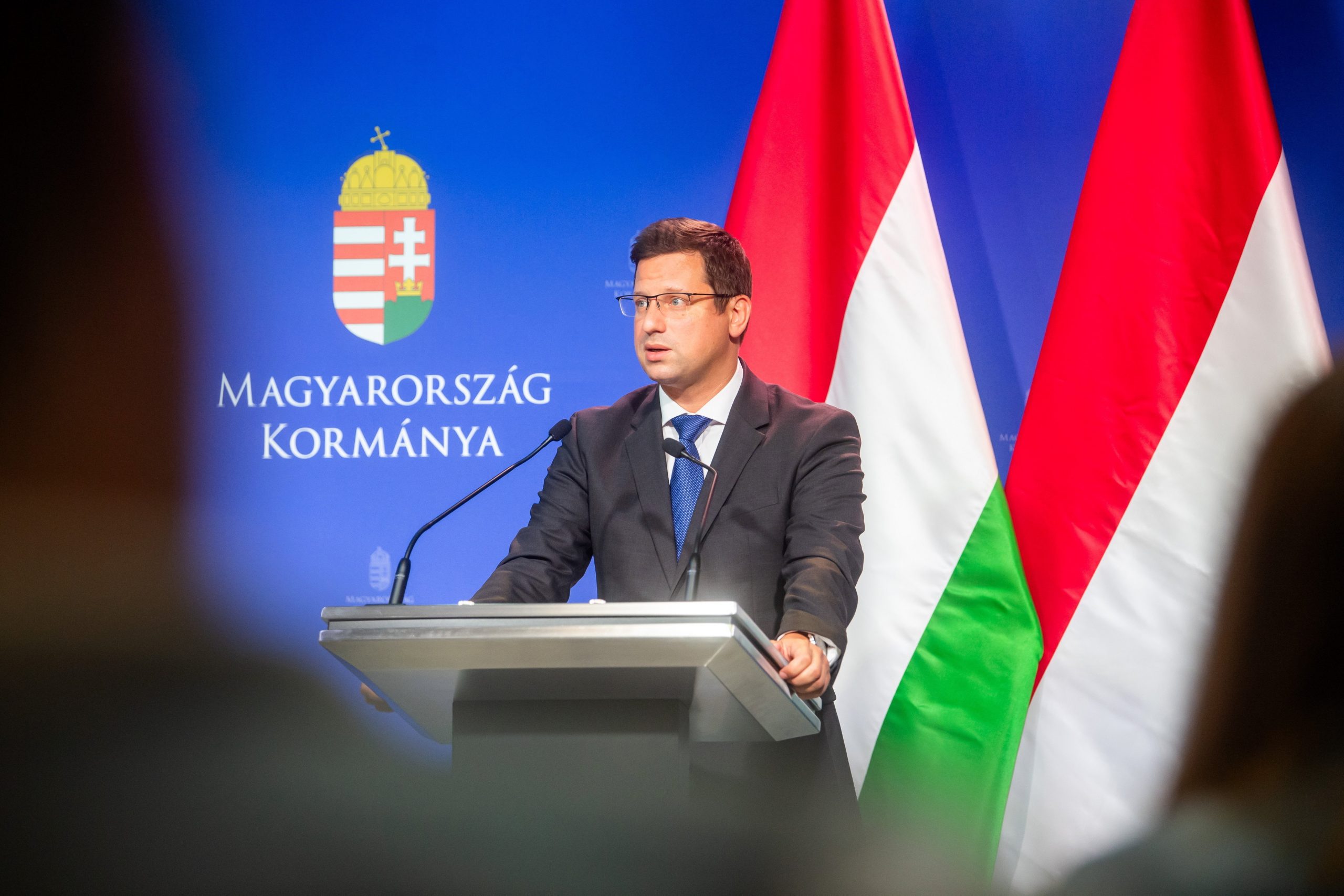
Hungary currently imports fuel through Ukrainian pipelines at five times the price.Continue reading

The debate between Finance Minister Mihály Varga and Hungarian National Bank Governor György Matolcsy at the round table of the Economists’ Meeting, focusing on the background and impact of high inflation among the most important topics, was not without critical remarks from both sides.
The 61st Economists’ Meeting is being held in Eger (northern Hungary). The event began with a roundtable discussion between Finance Minister Mihály Varga, Hungarian National Bank Governor György Matolcsy, and former Hungarian National Bank Governor Péter Ákos Bod, Ungarn Heute reported.
The National Bank Governor said at the beginning that the next Hungarian governments should not repeat the inflationary adventure we have experienced, and that the choice should not be between inflation and growth, because inflation eats growth.
Matolcsy recalled that the Hungarian National Bank had already indicated in the fall of 2020, that this could be an inflationary decade because the 1970s are back. He explained that the government started the fight against monetary deterioration a year and a half later than the National Bank. He stressed that a complete turnaround in competitiveness was needed. He also added that the lower the competitiveness, the higher the inflation.

Hungarian National Bank Governor György Matolcsy.
Photo: MTI/Komka Péter
The surge in energy prices has pushed up inflation in the eurozone, said Péter Ákos Bod, university professor and former Governor of the National Bank. He noted that in the United States, the rise in energy prices also boosted inflation, but other factors also played a role. However, even though inflation is declining as energy prices normalize, inflation factors have pushed up core inflation. There are commendable elements in the changing structure of the Hungarian economy, he said. However,
there is a very energy-intensive economic structure that weighs on the current account balance; in the worst case, we have a nine percent energy deficit, and the Hungarian economy is therefore extremely dependent on energy and imports.
According to Bod, Hungary’s debt rating is not good, and because of its foreign linkages, he does not see the country returning to its previous growth path.
Finance Minister Mihály Varga agrees that
the most important problem is inflation, and the government and the central bank are working together on it, but that doesn’t mean they agree on everything.
If inflation is too high, it slows down growth, and if there is no growth, jobs are at risk, he said. Besides, he noted that there is also moderate inflation, such as in Japan, and if national banks want to support growth, it can be useful in this country.
When asked about the causes of inflation, he mentioned the rise in energy prices as the most important point.
Hungary does not have sufficient capacity, we import electricity, so the rise in energy prices inevitably pushes prices up. Second, there was a very severe drought in the country, and third, due to the labor shortage, there was also a strong wage increase dynamic, and this wage increase also played a role in inflation. The National Bank was primarily responsible for price stability, Mihály Varga stressed for Matolcsy. He continued by adding that while the National Bank was raising interest rates, the bank was still buying government bonds: “You can’t blow hot and cold at the same time.”

Finance Minister Mihály Varga. Photo: MTI/Komka Péter
The finance minister said that the rating agencies’ assessments contained many positive elements. Regarding EU funds, he pointed out that they would probably wait for the Polish parliamentary elections, until then no EU funds would flow. He stressed that austerity measures would be maintained and the deficit this year would be lower than last year.
The deficit of 3.9 percent will be revised after tax revenues were worse than expected,
he announced.
The minister also mentioned the possibility of new taxes, as banks have made significant profits. Regarding the investment freeze, he said that even current investments could be suspended if necessary and the ministry’s spending freeze could be enforced. Improving competitiveness and efficiency is the most important goal of the government, Varga said. It is clear that the European economy is losing ground, as energy prices in America and Asia are much cheaper than in Europe, he stressed.
Via Ungarn Heute, Featured image: Facebook/Varga Mihály